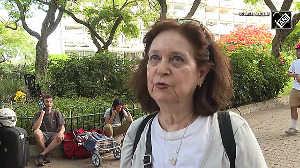America's top business schools may boast the history and the branding but none of them are resting on their laurels, not least Columbia Business School.
Though the school was founded more than 90 years ago in 1916, the past year has been one of the most innovative in the school's history.
A complete overall of the MBA curriculum, a move away from traditional teaching models, a rebranding of the school and the establishment of its own publishing imprint have all kept faculty and staff at the school busy over the past 12 months. And there is more to come.
Glenn Hubbard, who took over as dean of the school from the legendary Meyer Feldberg in 2004, has lofty aims for the school. The former chair of George W Bush's council of economic advisers, he believes that the business school should play a central role in the life of Columbia University, and provide the link between the university's academic world and the commercial world.
"Business school faculty aren't scared to interact with people in the real world," he says. "I think business schools do have the chance to be the centre of the university." Deans from other established US schools such as Harvard and Stanford have voiced similar aspirations.
And like these other top business schools, Columbia is also re-visiting the idea of what the ideal age is for managers to apply for a full-time MBA programme. Prof Hubbard believes that two to three years of work experience is ideal, though some students might be ready to study for an MBA straight out of undergraduate programmes - traditionally MBA applicants have been advised to have five or even seven years work experience.
One of the main reasons for this change of heart is that managers are being given positions of responsibility earlier in their careers, says Prof Hubbard. And that is one of the reasons behind the change in curriculum. "People are getting leadership positions earlier in their careers so they need to have more than analytical skills."
With its strong ties to Wall Street, Columbia has long been viewed as one of the standard bearers for analytical skills but these days communications and interpersonal skills sit alongside the numbers. All participants entering the MBA programme can expect a suite of courses and extra-curricular activities which will teach them to manage individuals, teams, networks - and themselves.
Unlike similar courses at other business schools, the Columbia programme is based on academic research conducted by Michael Morris a professor in Columbia's management division. The Programme on Social Intelligence, as it is called, draws as much on psychology as on the more traditional business school options.
This year the school has also launched a series of masterclasses, project-based classes that combine the academic with the practical in areas such as retailing or real estate. Each of the 22 masterclasses can accommodate up to 36 students, working in six teams of six students to work on the projects. Appropriate companies are involved in the projects and "their (the students') work is evaluated by the norms of the industry," says senior vice dean Paul Glasserman.
From next year even more change is afoot when the school adapts its curriculum to give a shorter and more flexible set of core courses. Instead of the 10 courses today, future students will only have to study eight and that will include three half courses, one each from three "buckets" of courses - organisation, performance and markets. So someone planning to go into management consultancy might choose an economics course which takes a strategic view, while another student planning to move into asset management might opt to study macroeconomics, says Prof Glasserman.
In order to cram all the basics into the programme some full courses have been concentrated into half courses, but none of the traditional MBA core subjects have been lost. "We do have to have a strong core," says Prof Hubbard. "We're not throwing the baby out with the bath water."
Looking further ahead the big news for Columbia will be the opening of its new campus, which should take place between 2012 and 2015. For Prof Hubbard this will be the biggest achievement of his deanship. "When I look at the things I wish I could change," he says, "it is the building."
Fund-raising for the new building and to increase the number of faculty at the school (today Columbia has 116 full-time faculty) is well under way and Prof Hubbard does not rule out the idea of a naming gift. "I have a price for almost anything," he says. "There is one very large and one smaller building on the new campus - two naming opportunities. You do really need a signature gift."
When the business school moves to the Manhattanville site in West Harlem it will be one of the first Columbia university departments to do so. But it will clearly fulfil the first of Prof Hubbard's aims: to be at the heart of the university.






